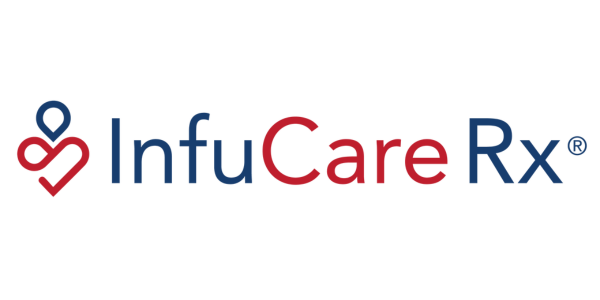Check out the links below

Knowledge is a driving force
What is anti-infective therapy?
Anti-Infective Therapy is a form of therapy against infectious diseases that consists of intravenous infusion of antibiotic, antiviral, or anti-fungal drugs. This therapy is used when infections do not respond to oral medications. Infectious diseases are caused by microorganisms called pathogens that infiltrate the immune system.
InfuCare Rx safely provides anti-infective therapy services in the home setting. Home therapy administration is favorable for long-term therapies. Administration is given daily and dosages differ based on the drug.
Check out these resources for specific conditions:
Cystic Fibrosis • Pneumonia • Endocarditis • Meningitis • Lyme Disease • Septicemia • Urinary Tract Infection • Intra-Abdominal Infection • Pelvic Inflammatory Disease • Pneumocystis Pneumonia
Additional Resources:
What is hemophilia?
Hemophilia, however rare, is the most common bleeding disorder in which the blood does not clot properly. People with hemophilia are missing one of their clotting factors. Clotting factors are different proteins in the blood that help to stop bleeding. Hemophilia may cause prolonged bleeding after an injury, surgery or a dental procedure. Bleeding may also occur internally in the joints, muscles, brain or other organs of the body.
The two main types of hemophilia are A and B. With hemophilia A being the most common type, it affects nine out of ten people with the disorder. Hemophilia A, also known as classic hemophilia, occurs when a person has low levels of, or is completely lacking, clotting factor VIII (8). People with hemophilia B, also known as Christmas disease, have low levels of, or are completely lacking, clotting factor IX (9). Both forms occur more often in males than females, with one in 5,000 males born each year with the disorder.
Check out these resources for specific conditions:
Hemophilia A • Hemophilia B • Factor II Deficiency • Factor V Deficiency • Factor X Deficiency • Factor XII Deficiency • Von Willebrand Disease
Additional Resources:
National Hemophilia Foundation • Hemophilia Federation of America
What is inflammation?
Inflammation is the immune system’s process of fighting against invasions such as infections, injuries, and toxins. When cell in your body are damaged, chemicals are released to alert the immune system. These chemicals include antibodies and proteins that travel to the injury site via increased blood supply.
Usually, this response lasts a few day which is known as acute inflammation. Chronic inflammation occurs when this response is elongated. Over time, chronic inflammation may have a negative impact on your tissue and organs. Research shows chronic inflammation may be involved in conditions ranging from cancer to asthma.
Check out these resources for specific conditions:
Ankylosing Spondylitis • Crohn’s Disease • Giant Cell Arteritis • Hidradenitis Suppurativa • Juvenile Idiopathic Arthritis • Plaque Psoriasis • Polymyalgia Rheumatica • Psoriatic Arthritis • Refractory Gout • Rheumatoid Arthritis • Systemic Lupus Erythematosus • Ulcerative Colitis • Uveitis
Additional Resources:
Arthritis Foundation • National Psoriasis Foundation • Crohn’s and Colitis Foundation of America
What is immunoglobulin therapy?
Immunoglobulin or IG therapy has been utilized for decades for the treatment and prevention of a number of conditions. Immunoglobulins, also known as antibodies, are produced by the body to signal the immune system to attack unhealthy or “bad” cells, such as viruses or bacteria. You can think of immunoglobulin as your own personal army that fight off foreign invaders and protect you against illness.
Today, immunoglobulin therapy is generally administered in two ways:
1. Intravenous [in-tra-VEEN-us] or IVIG is administered directly into the vein.
2. Subcutaneous [sub-cue-TAY-nee-us] or SCIG is given under the skin.
What is intravenous immunoglobulin therapy?
Intravenous immunoglobulin is administered directly into the vein. Your infusion certified nurse will administer your intravenous immunoglobulin therapy and stay with you for the duration of your treatment. Your nurse will also ensure correct dosage and provide ongoing monitoring and assistance.
What is subcutaneous immunoglobulin therapy?
Subcutaneous immunoglobulin is given under the skin. Your infusion nurse will initially administer your subcutaneous immunoglobulin therapy, and will then teach you to administer it independently. Your nurse is always available to assist you, monitor your condition, and address any concerns you may have.
Check out these resources for specific conditions:
Autoimmune Encephalitis • Dermatomyositis • Hypogammaglobulinemia • Idiopathic Thrombocytopenia Purpura • Immunodeficiency with Hyper IgM • Immunodeficiency Disorders • Wiskott-Aldrich Syndrome • N.A.I.T. • Chronic Inflammatory Demyelinating Polyneuropathy • Common Variable Immune Deficiency • Guillain-Barre Syndrome • Multiple Sclerosis • Multifocal Motor Neuropathy • Myasthenia Gravis • Pemphigoid • Pemphigus • Polymyositis • Polyneuropathy • Selective IgA Immunodeficiency • Severe Combined Immunodeficiency • Stiff Person Syndrome
Additional Resources:
Immune Deficiency Foundation • GBS-CIDP Foundation International • National Multiple Sclerosis Society • Autoimmune Encephalitis Alliance • Multiple Sclerosis Foundation • Platelet Disorder Support Association • International Pemphigus & Pemphigoid Foundation • Myasthenia Gravis Foundation of America • The Foundation for Peripheral Neuropathy • The Myositis Association
What is parenteral nutrition therapy?
Parenteral nutrition (PN) is intravenous administration of nutrition, which may include protein, carbohydrate, fat, minerals and electrolytes, vitamins and other trace elements for patients who cannot eat or absorb enough food through tube feeding formula to maintain good nutrition status.
This special liquid food mixture is given into the blood through an intravenous (IV) catheter (needle in the vein). Achieving the right nutritional intake in a timely manner can help combat complications and be an important part of a patient’s recovery. Parenteral nutrition is sometimes called Total Parenteral Nutrition (TPN).
Check out these resources for specific conditions:
Bariatric Procedure Complications • Crohn’s Disease • Enterocutaneous Fistula • Gastroparesis • Hyperemesis • Intestinal Bowel Obstruction • Malabsorption Syndrome • Malnutrition • Pancreatitis • Short Bowel Syndrome
Additional Resources:
American Cancer Society • American Gastroenterological Association • Association of Gastrointestinal Motility Disorders • Academy of Nutrition and Dietetics • American Society for Parenteral & Enteral Nutrition • Celiac Disease Foundation • Crohn’s and Colitis Foundation of America • G-Pact: Gastroparesis Support Group
What are specialty injectables?
Specialty injectables are drug therapies used for the treatment of chronic and/or life threatening conditions and require administration by injection, infusion or inhalation. Specialty Injectables require alert monitoring and educational counseling in conjunction with their use.
InfuCare Rx safely provides specialty injectable therapy services in a convenient setting. Home therapy administration is favorable for long-term therapies. Administration frequency and dosages differ based on the drug.
Check out these resources for specific conditions:
Cystic Fibrosis • Pneumonia • Endocarditis • Meningitis • Lyme Disease • Septicemia • Urinary Tract Infection • Intra-Abdominal Infection • Pelvic Inflammatory Disease • Pneumocystis Pneumonia
Additional Resources:
Connect
Patients
Get In Touch
Download Forms
My Health Portal
*Disclaimer: We suggest that you discuss any information you receive from these organizations with a qualified professional before making any changes to your healthcare, insurance or home care provider. InfuCare Rx does not endorse these organizations or information they may disseminate. Please be aware that some of these sites may charge a fee for access to services.



